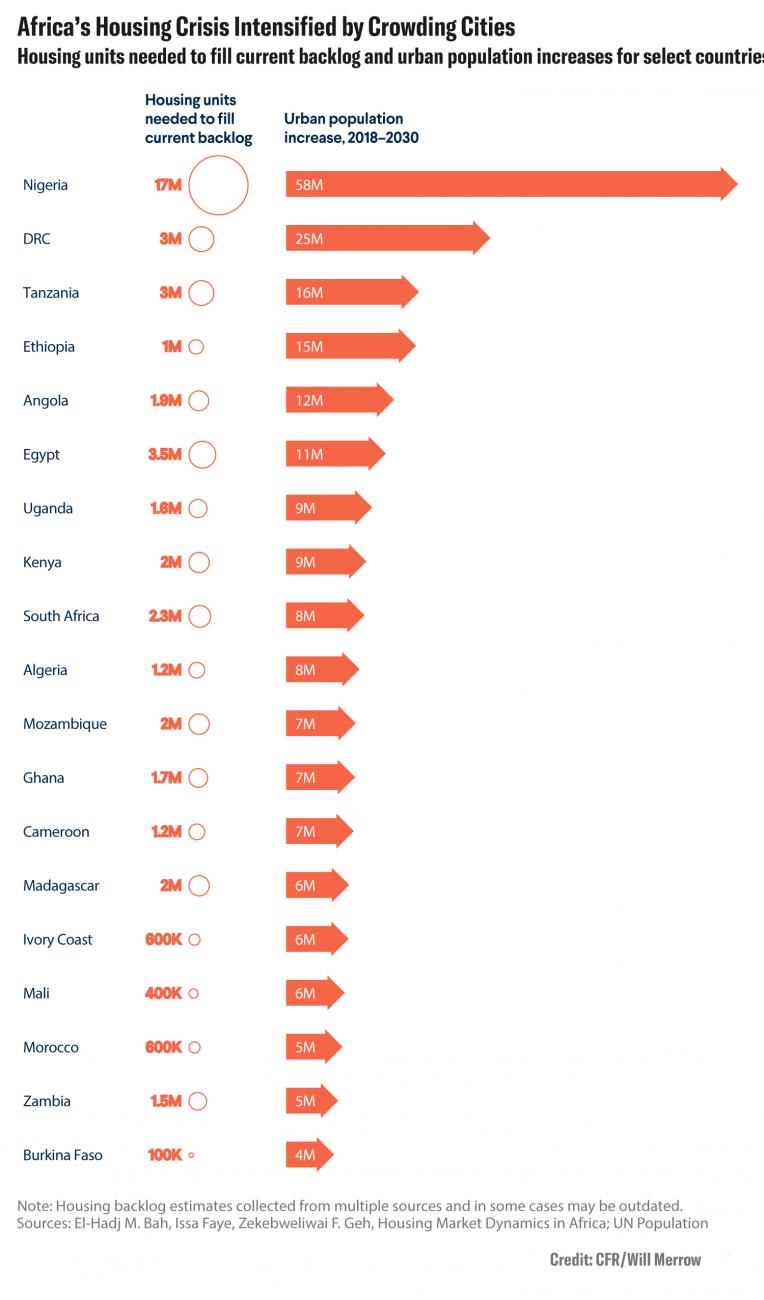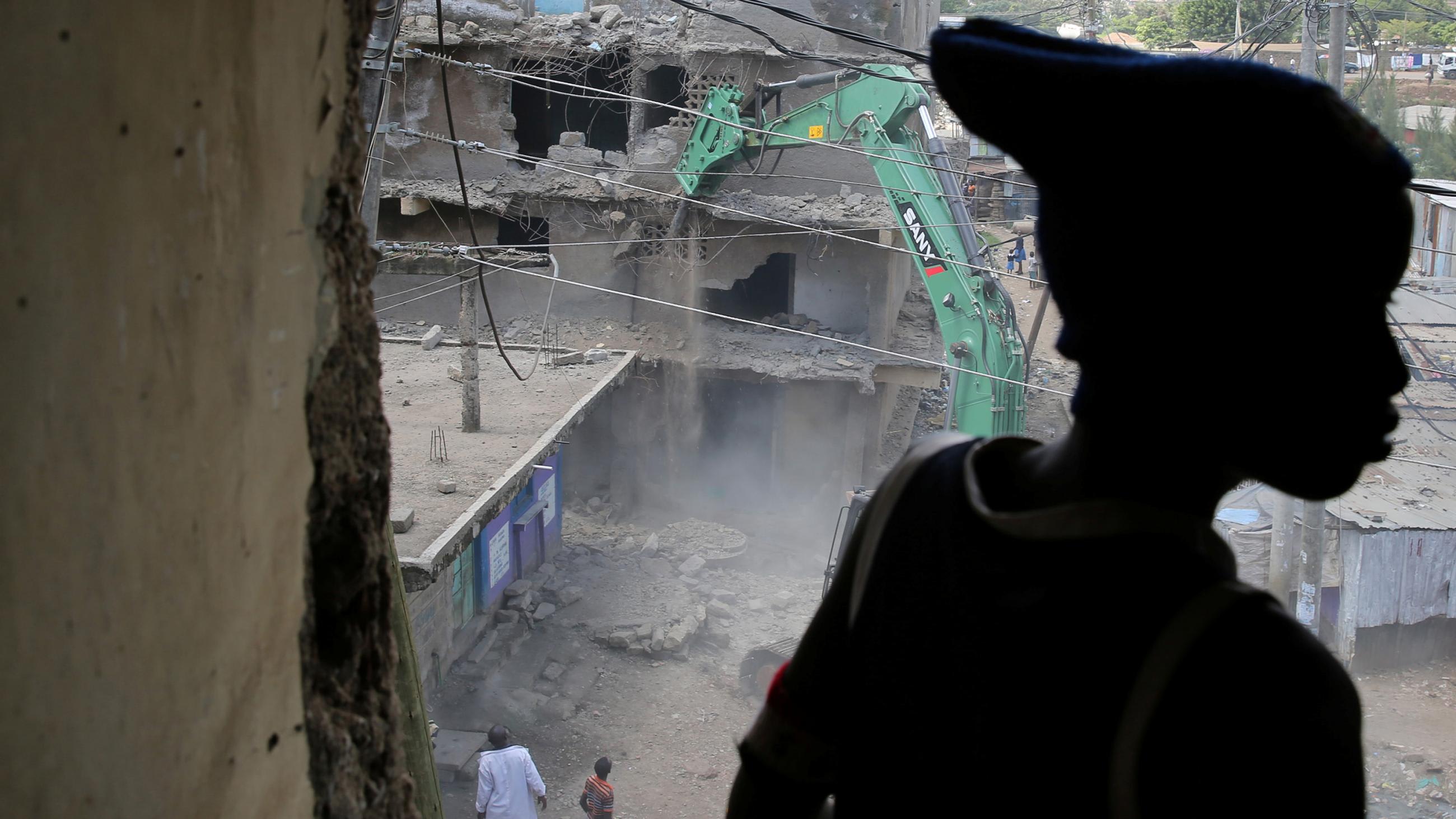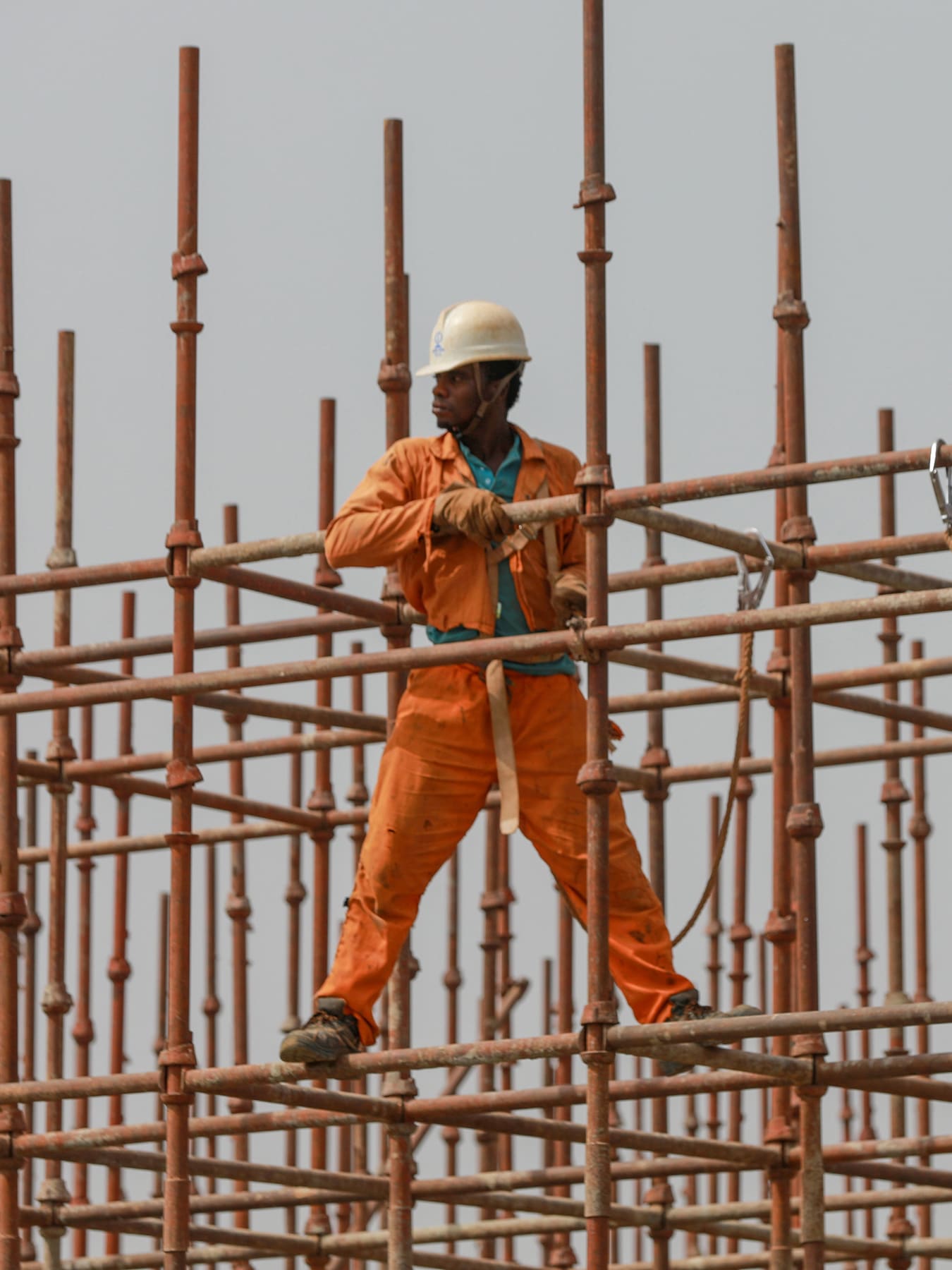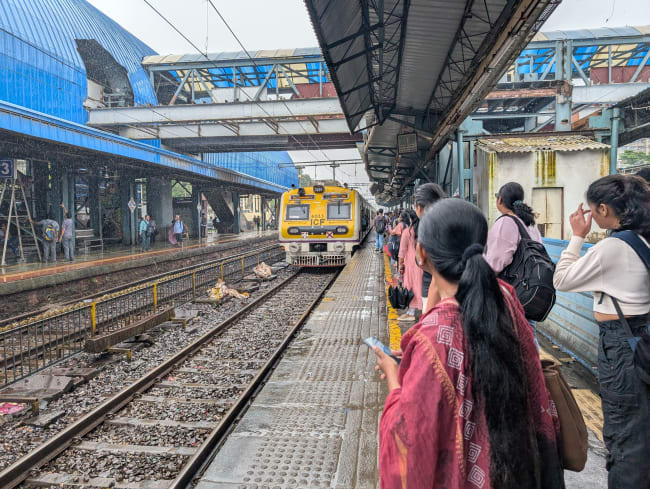Africa's urban housing crunch is already a serious problem, and without significant investments and policy interventions, it's likely to get far worse in the decade ahead. As the continent's booming youth population flocks to cities in search of work, many will struggle to find a place to call their own.
The looming menace of major housing shortfalls in many African cities threatens urban health and safety. Infectious diseases are especially hard to contain in densely populated, informal settlements where residents may not have access to clean water, sanitation, adequate ventilation, and emergency health care when they become sick. In a region where respiratory infections, diarrheal diseases, and vector-borne infections are already among the leading causes of death, the prospect of persistent health crises in Africa's growing cities is a serious challenge for the future. For Africa's coastal cities, rising sea levels and climate change resilience imperatives add complexity to planning for future housing needs.
The prospect of persistent health crises in Africa's growing cities is a serious challenge for the future
Moreover, the urban housing crunch can fuel powerful social frustration, the psychological impact of butting up against social status ceilings. When young people find themselves priced out of their housing markets, they can become trapped in sociocultural limbo because they cannot attain the expected signifiers of adulthood. In the best-case scenarios, that frustration will find effective political expression in demands for more responsive and accountable governance aimed at improving urban conditions and expanding opportunities. But when popular demands go unmet, or are repressed by heavy-handed authorities, more violent confrontations are possible.

Of course, the challenges are not insurmountable. The continent's changing demographics present appealing commercial opportunities to those equipped to help build the urban infrastructure of the future. It's no accident that the 28th Africa-France Summit taking place this June is focusing on sustainable cities; France sees attractive economic opportunities in Africa's rapidly expanding cities.
The simple necessity of addressing the looming crisis may stimulate innovative approaches to financing urban housing development
For decades, China has been the dominant force in building all kinds of African infrastructure, well before the formal launch of the Belt and Road Initiative. But affordable housing has not been a priority of Chinese investors, despite the high degree of Chinese penetration in the construction and real estate sectors on the continent.
For all the evidence of booming construction in Africa's growing cities, affordable housing needs remain difficult to meet because of the pace of migration, the difficult economics, the complex risk involved in providing housing for the poorest urban newcomers, and the host of land tenure laws (which govern how land is owned, transferred, and used) and regulatory restrictions that constrain rapid construction of sustainable housing solutions. These last constraints can be taken up urgently by African technocrats to remove legal and zoning barriers to urban housing development, paving the way for the substantial investments required to address the housing shortfall and keep up with projected demand. The simple necessity of addressing the looming crisis may stimulate innovative approaches to financing urban housing development. That will only happen, however, if leaders set the stage for success.

EDITOR'S NOTE: This story was expanded by its author and the graphic accompanying it was adapted from an earlier post on CFR.org.












